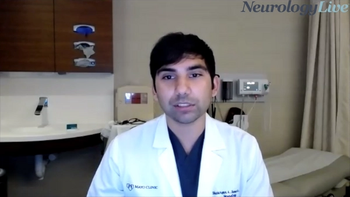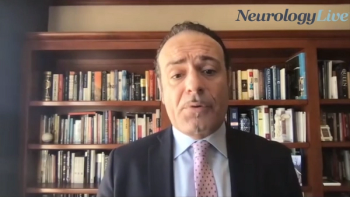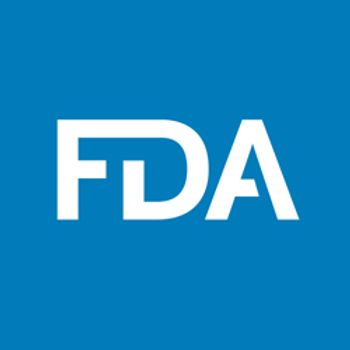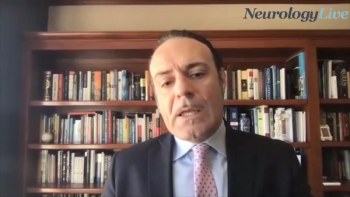
Episode 9 of the AUPN Leadership Minute features Donald S. Higgins, Jr., MD, of the Veterans Health Administration; and Douglas J. Gelb, MD, PhD, of the University of Michigan [WATCH TIME: 5 minutes]

Episode 9 of the AUPN Leadership Minute features Donald S. Higgins, Jr., MD, of the Veterans Health Administration; and Douglas J. Gelb, MD, PhD, of the University of Michigan [WATCH TIME: 5 minutes]

Data from a cohort of more than 900 individuals suggest that while total tau can add cross-sectional value in certain contexts, neurofilament light served better for prognostication of cognitive decline and imaging changes.

The neurologist from Mayo Clinic discussed his abstract at AAN 2021 comparing stroke rates in patients with cerebral amyloid antipathy given treatment with aspirin.

Critically ill patients who were obtunded, stuporous, or comatose had pediatric lateralized epileptiform discharges, and acute brain insults were among many clinical characteristics to benefit from longer EEG.

The ability to feed orally and swallow was maintained by an overwhelming number of patients treated with risdiplam at 24 months.

The director and founder of the Sleep Centers of Middle Tennessee discussed strategies to achieve long term adherence to cPAP from patients with obstructive sleep apnea.

Kimberly Allen-Philbey, a PhD candidate at the Barts MS Center in London, discussed the advantages of using a personalized dosing schedule of off-label, subcutaneous cladribine.

According to the study authors, future longitudinal studies assessing the evolution of cognitive and cortical excitability changes may provide a greater understanding of the importance of cortical circuits in ALS pathogenesis.

The consultant in the Department of Neurology at Mayo Clinic discussed the mechanisms of action researchers should key in on for patients with Parkinson disease.

Findings suggest that the neuroprotective therapeutic response from rituximab in patients with relapsing-remitting multiple sclerosis may take up to 12 months.

The professor of health science at the Medical University of South Carolina detailed the limits of what can be achieved with behavioral interventions for the symptoms of dementia.

The 2021 AAN Annual Meeting will be held virtually from April 17-22. Follow along with coverage from NeurologyLive, including expert interviews and session recaps.

The senior investigator at the National Institutes of Neurological Disorders and Stroke spoke about further research his lab is conducting into MS mechanisms.

Researchers analyzed data from the 10,472 Medicare beneficiaries diagnosed with mild cognitive impairment or dementia in California.

The assistant professor of neurology at Thomas Jefferson University discussed the potential and feasibility of brain implants in patients with stroke.

The chair of neurology and Olemberg Family Chair of Neurological Disorders at the University of Miami Miller School of Medicine discussed solutions to improve disparities in stroke care and the need for future research on social determinants of health.

Jemima Akinsanya, DO, Neuroimmunology Clinical Fellow at the National Institutes of Health, discussed new studies of anakinra and tolebrutinib in MS.

Overall, 42.4% of patients with Huntington disease reported at least 1 psychiatric or cognitive symptom before motor symptoms, with depression being the most common.

The FDA and CDC made the call after 6 reports of the serious blood clot event, which has so far been linked to 1 patient death.

The postdoctoral researcher at Columbia University discussed the use of the DISCO-MS survey and its potential for future research projects.

A group of 15 repurposed agents were identified as the best candidates for activity against the network of 20 related and distinct biochemical pathways that are dysregulated in AD-related dementia.

Ilena George, MD, of Massachusetts General Hospital, discussed a cohort of patients with early DMT prescription and low rates of clinical conversion.

At 6 months, 62% of the 10 kHz spinal cord stimulation treatment group had observed improvement upon investigator-assessed neurological examination, compared to 3% of conventional medical management subjects.

The director and founder of the Sleep Centers of Middle Tennessee discussed the OSAinHome program that his practice has developed.

Patients with highly refractory status epilepticus had greater median hospital length stays as well as greater median hospital costs compared to patients with moderate or low refractory status epilepticus.

The professor of neurology at Johns Hopkins University, and a member of the Curing Coma Campaign’s Scientific Steering Committee spoke to the current limitations of clinical trials in coma.

Here's what is coming soon to NeurologyLive.

The consultant in the Department of Neurology at Mayo Clinic discussed the advancements of Parkinson disease knowledge and treatment over the past 2 decades.

Researchers used patient, family, and public engagement to develop a 14-item DMD-QoL questionnaire.

Treatment with fingolimod followed by alemtuzumab led to an increase in spinal relapses as well as increased risk of secondary autoimmunity.